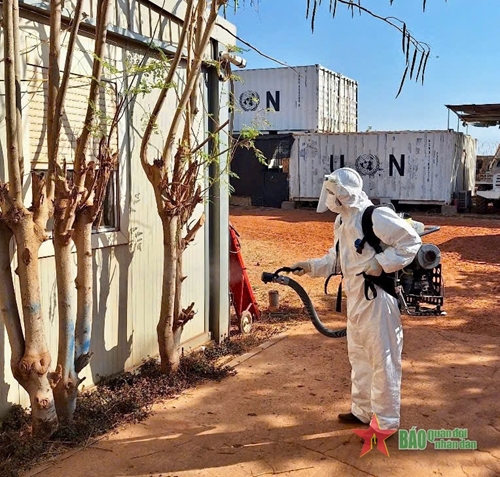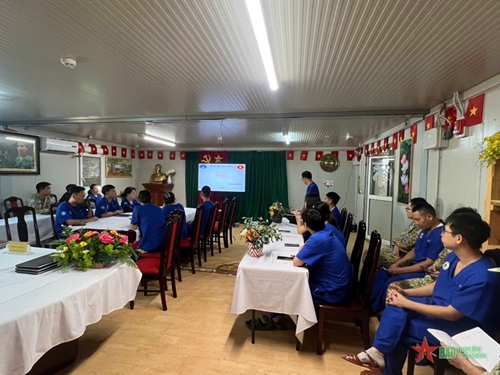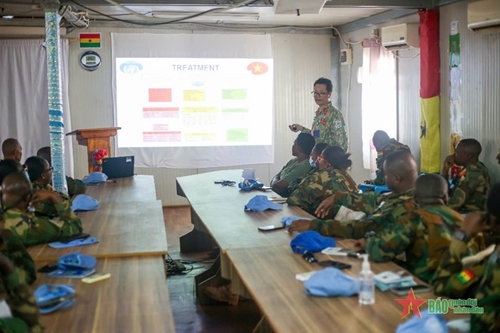The cholera outbreak, which began to escalate in Bentiu in early December 2024, posed significant challenges to healthcare efforts in the region. In response, the Vietnamese hospital swiftly adopted comprehensive measures to protect the health of U.N. staff and the local community. Upon receiving reports of the outbreak, the hospital promptly established a disease prevention and control committee to devise an effective response plan.
    |
 |
|
Disinfecting the hospital campus |
Detailed protocols for patient admission and treatment were developed, covering initial screening, disease severity classification, isolation, and treatment following U.N. guidelines. Special attention was given to minimizing infection risks within the hospital, ensuring the safety of both medical personnel and patients.
The hospital organized training sessions to enhance awareness and skills in cholera prevention and control for its staff. It prepared large quantities of essential medical supplies, such as oral rehydration solutions, antibiotics, disinfectants, and protective gear. In addition, L2FH Rotation 6 installed quick hand sanitization stations in high-risk areas like entrances, the hospital lobby, dining halls, and staff accommodations. It also conducted hospital-wide disinfection using chloramine B-based chemicals to maintain a sterile environment. Finally, the hospital regularly inspected and maintained water filtration systems and conducted water quality testing to ensure safe water for daily use and food preparation.
    |
 |
|
Training the hospital’s staff on cholera prevention and control |
As the highest-level medical facility in the region, L2FH Rotation 6 not only managed disease prevention within its premises but also supported partner units in combating the outbreak. The hospital advised sector commanding officers on epidemic control plans, guided level-one field hospitals (L1FHs) in establishing standard isolation zones, and deployed experts to conduct specialized training courses.
These training sessions equipped L1FHs staff with the knowledge and skills to effectively prevent, diagnose, and treat cholera, contributing to reducing the burden on Vietnam's L2FH Rotation 6.
    |
 |
|
L2FH Rotation 6 conducting specialized training on epidemic control for a partner unit |
Thanks to the hospital's rigorous efforts and close coordination, no cholera cases have been reported among hospital staff or partner units so far. Strict control measures have proven effective in ensuring a safe healthcare environment.
In the coming weeks, Vietnam’s L2FH Rotation 6 will continue to monitor the disease closely, accelerate awareness campaigns, conduct routine inspections, and maintain preventive measures. These efforts not only help contain the outbreak, but also underscore the responsibility and high professional standards of Vietnam’s military medical personnel in international peacekeeping missions.
Translated by Trung Thanh